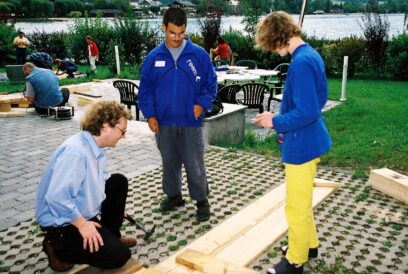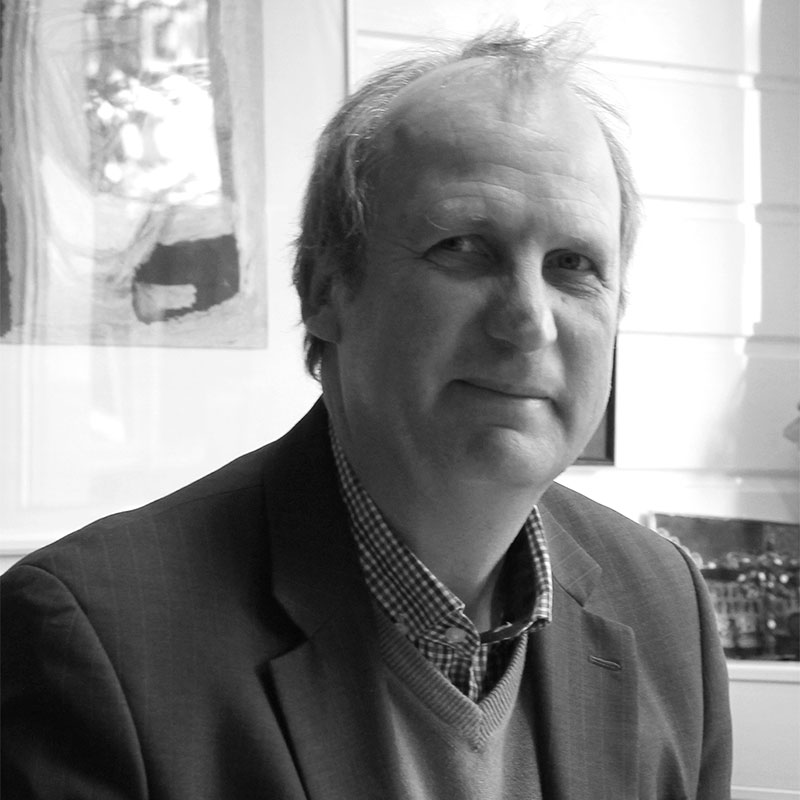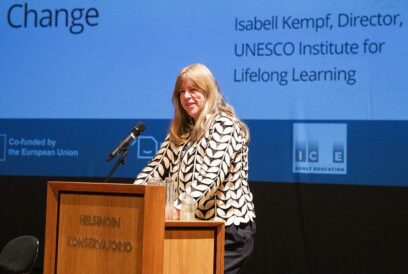

The main aim for Cities of Learning has been to help people see new learning opportunities near them. Photo: Shutterstock
The main aim for Cities of Learning has been to help people see new learning opportunities near them. Photo: Shutterstock
For the future of lifelong learning, one key challenge is to recognise and showcase learning wherever it happens. Cities of Learning Programme aims to do just this.
In the rapidly changing world, we need agile and flexible learning models that also recognise the skills people learn outside formal education environments.
Cities of Learning is a new programme by RSA, with the aim of helping people find new learning opportunities near them. The programme uses digital platform that let learners transform what they’ve studied into new skills, qualifications and careers.
We talked to Tom Kenyon, who has been leading the programme, about the future of lifelong learning, improving digital access and the importance of working with learners that have not thrived in traditional learning environments.
What is behind the “City of Learning” concept?
“The Cities of Learning Programme aimed to establish a new model for cities and regions to design and deliver inclusive lifelong learning, tailored to the needs of local people and economies.
The programme was initiated in the UK by RSA and built on the work of other leading global initiatives such as LRNG in the USA and UNESCO Learning Cities, taking forward recommendations from the RSA’s 2015 report New Digital Learning Age.
The mission was to work with leadership to create a shared vision for learning in the city, networks to connect learning providers and opportunities and a platform to make learning opportunities visible and navigable using digital badges.
The pilots began development in Plymouth and Brighton in 2018. Co-design and development with lead organisations in each city (Real Ideas in Plymouth and Future Creators in Brighton), City and Guilds (Digital Me) and developers Navigatr ran throughout the programme.”
How are you reaching the people who would benefit from the programme the most?
“Cities of Learning leaders in Plymouth and Brighton worked with local learning providers, job centres and youth workers to identify and work with learners that have not thrived in traditional learning environments.
Our digital badges are designed to recognise non-formal and informal learning. One of the major benefits we found was that the badges helped young people identify and articulate the skills they had to employers, even if they lacked traditional qualifications.
Lack of digital access is an issue and one we’ve tried different ways to tackle. We worked with learners who had significant additional educational needs in which case the badges earned were issued to parents or carers for a digital record, and we printed the badges as certificates with a QR code that linked to the digital achievement.”
How do you assess the success of the programme – and what should happen next?
“Throughout the pilot, Cities of Learning issued badges to 1 734 learners for activities ranging from audio production to independent research to volunteer charity work. The city teams worked with 53 different organisations to create badges. Half of our badge earners completed more than one badge.
The direct impact of the Cities of Learning pilots was evaluated independently by the Learning and Work Institute. The report offers encouraging signals for future impact, stating: “CofL and digital badges are clearly in a strong position to respond directly to the needs of young people as well as to align with government support programme during the Coronavirus pandemic and economic crisis.”
The RSA and our Cities of Learning partners Badge Nation and Navigatr are now working to scale the Cities of Learning and to map and connect all non-formal and informal learning in places across the UK.”
Author






